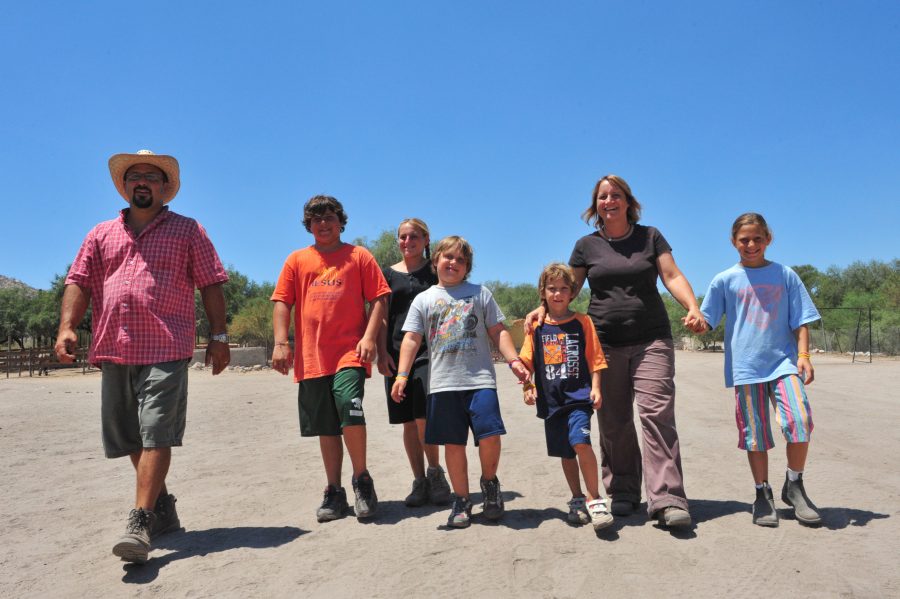
Missionary Life
Raising Up Healthy Missionary Kids
October 16, 2014
by Josh McQuaid

We asked Josh McQuaid, TEAM’s Director of Organizational Engagement, to share about his experience growing up as a missionary kid (MK) in South America. Today, Josh discusses some tangible ways you can support and help raise up a generation of healthy and happy missionary kids.
For missions-minded churches and savvy individual ministry partners, the notion of caring for your missionary will be nothing new. It may be second nature for you to pray, write encouraging notes, send care packages or even visit in person. But even if you’re doing all of this, you might be overlooking one of the most critical opportunities to care for the missionary families you support.
It’s no secret that I am in ministry today because of the overwhelmingly positive experience that I had growing up as the child of missionaries. This began with my parents’ commitment to making us a family “on mission” rather than parents on mission with children “in tow.” But it would be hard to overestimate the impact of the individuals and churches that stood behind us as well.
Unfortunately, I also saw the opposite narrative play itself out in the lives of peers with whom I grew up. Some thrived. Some did not. Often times, the success or failure of a missionary kid can be predicted by the support that he/she received from their sending community.
So what did our team do well? I can think of at least three critical ways in which I was supported and many of my friends weren’t. If our communities could master these, we’d be well on our way to seeing a healthy generation of Missionary Kids raised up.
1. Talk about mission—a lot.
This sounds simple, but here’s why it matters to a MK. When a MK returns to North America, they step back into a peer group that, many times, can’t imagine their world. Because our North American support community—of which our sending church was the flagship—had a well-developed and very public commitment to missions in general and their missionaries in particular, I was able to step into a community that had a category for me, understood me, and cared for me. I wasn’t seen as an outsider that had to earn his place. Instead, I had friends who had some concept of what my life was like and weren’t afraid to welcome me into their lives in spite of my (admittedly numerous) cultural eccentricities. This was huge.
2. Put yourself in the MK’s shoes.
In a society as transient as ours, many of us have felt the same kind of displacement experienced by MKs. Moving to a new place, with new sights, tastes, expectations, and (eventually) friends, would be challenging for anyone; it’s especially challenging when your relocation has more to do with someone else’s calling and conviction than your own.
Think about what it takes to settle into a new place. Then imagine how much easier that would be if you had someone helping you through the process. If someone went out of their way to invite you into their home for meals, help you find the best places to shop, give you insight into the unique culture of this place…how much easier would that adjustment be? Don’t be afraid to offer this kind of friendship and “coaching” to MKs returning from the field. In many cases they may not even know that they need it, but it’s a rare MK that wouldn’t benefit from this.
3. Remind the MK that they aren’t that different.
There are few things that make my skin crawl more than hearing things like, “you and your family are such heroes,” or “you’ve sacrificed so much,” or “I can’t even imagine going through what you’ve been through.” Fortunately, our community did a good job of sheltering me from comments like this, and giving me a healthy understanding that—in spite of the many things that made my life different—I was normal. My struggles were the same as my peers, my dreams were largely the same, and my doubts were very similar. I was keenly aware of how abnormal I was in many areas, and reminders of this were never appreciated. I knew how normal life on the mission field really was, and I found it difficult to take seriously those whose didn’t seem to understand this reality as well. At the end of the day, those who treated me the same as they treated my peers had the greatest impact on my life.
Of course, there are those MKs who endure truly traumatic circumstances. As with other adolescents that go through similar experiences in North America, what is needed here is wise, godly counsel and care. This piece of advice may be less helpful to them, but only when it comes to those exceptional circumstances. In many other ways they will still benefit from knowing that they are not strange, weird or exceptional. They too need to be reminded that they are normal.
Above all, remember that MKs are individuals just like everyone else, and they aren’t defined by where they happened to have been brought up. They will likely have a larger worldview, but will typically struggle to adjust to life in North America, and struggle to understand God in all his complexity. If you want to serve your missionaries well, serve their children well as they learn how to follow Christ in this foreign country.
For more tangible ways you can support the missionaries you know check out, “7 Critical Points When You Can Serve Your Missionary.”

